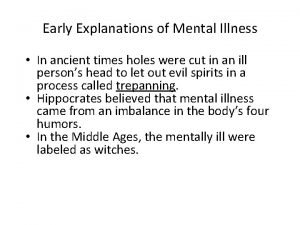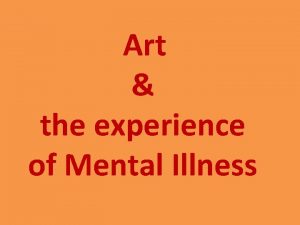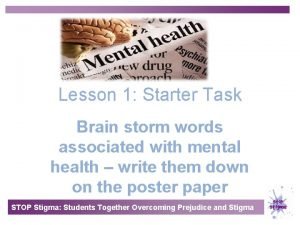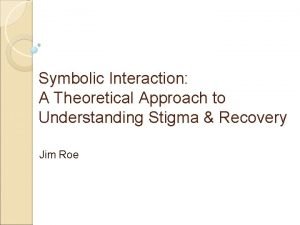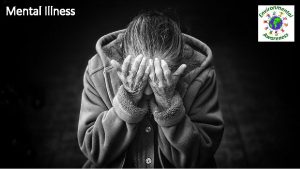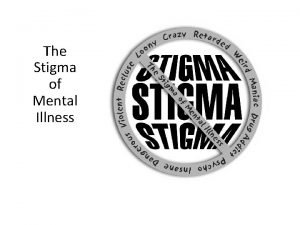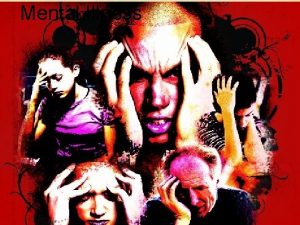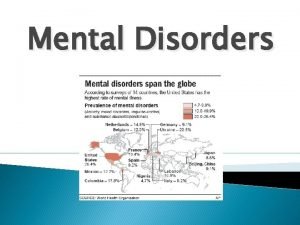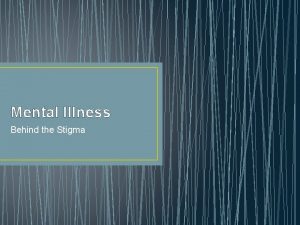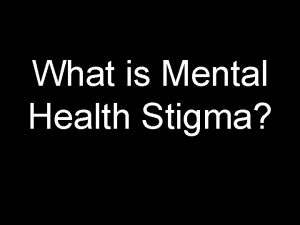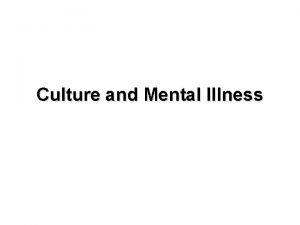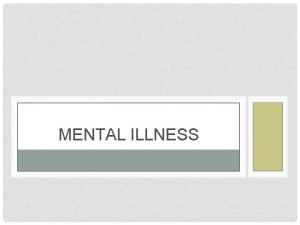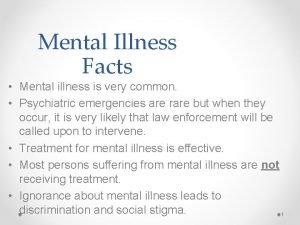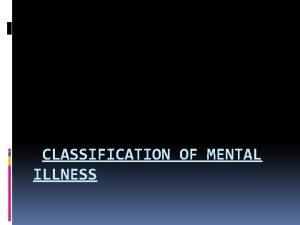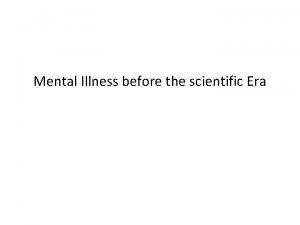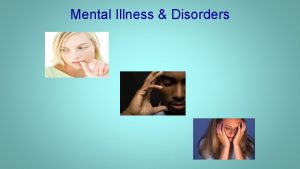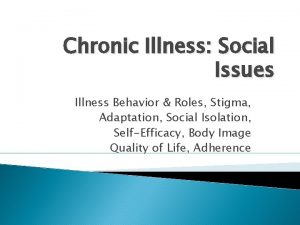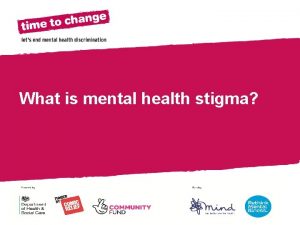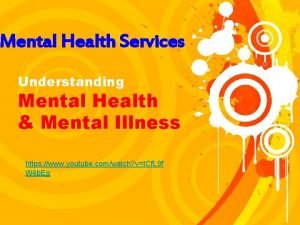The Stigma of Mental Illness Stigma A sign

























- Slides: 25

The Stigma of Mental Illness

Stigma A sign of social unacceptability A mark of shame or discredit

Stigma Involves negative attitudes and beliefs that lead to: Ø Ø Fear Rejection Avoidance Discrimination

• Shocking, isn’t it? But it’s true. People simply don’t take mental illnesses seriously. They assume that those with mental illness are weak or somehow at fault for their suffering. But like heart disease or any other serious affliction, people with mental illness can’t get better by themselves.

Terms Related to Stigma


Involves reactions that include: Ø Bullying Ø Harassment Ø Violence Ø Avoidance Ø Fear Ø Name Calling: Ø Crazy Ø Psycho Ø Loony Weird Insane credit: Human Relations Media Maniac Photo www. hrmvideo. com

What people think • Many people believe there is something about people with mental illness that makes it easy to tell them from “normal” people

What people think Just 50% of Canadians would tell friends or coworkers that they have a family member with a mental illness, compared to 72% who would discuss diagnoses of cancer or 68% diabetes in the family. Almost one in three Americans say they believe depression is just a “state of mind”

What people think 46% of Canadians think people use the term mental illness as an excuse for bad behaviour; and 27% are fearful of being around people who suffer from serious mental illness. xvii Only 12% of Canadians said they would hire a lawyer who has a mental illness, and only 49% said they would socialize with a friend who had a serious mental illness. xvi

Stigma Result of What People Think: People do not seek help for fear of rejection, discrimination, ridicule Photo credit: ABC-of-Yoga. com

Stigma Those with a mental illness may: Ø Feel embarrassed Ø Hide symptoms Ø Try to “self medicate, ” often with street drugs Ø Make bad choices to “fit in”

Why fight stigma? • Just as we wouldn't mock someone for having a physical illness like cancer or heart disease, it is cruel to make fun of someone with a mental illness.

Why fight stigma? - There is hope – people can and do recover from mental illness - With early intervention, treatment may be more effective

• Knowing the myths and realities about Mental Illness will help reduce the stigma!










 Mental health and mental illness chapter 20
Mental health and mental illness chapter 20 Mental health jeopardy questions
Mental health jeopardy questions All traffic signs and meanings
All traffic signs and meanings Mental illness in ancient times
Mental illness in ancient times Americanization of mental illness
Americanization of mental illness Personality disorder vs mental illness
Personality disorder vs mental illness Thought broadcasting
Thought broadcasting Historical views of mental illness psychology ocr
Historical views of mental illness psychology ocr Mark rothko mental illness
Mark rothko mental illness Ksi mental illness
Ksi mental illness Fair housing act mental illness
Fair housing act mental illness Catherine earnshaw mental illness
Catherine earnshaw mental illness Trousseau's
Trousseau's Trousseaus
Trousseaus Kernig sign brudzinski sign
Kernig sign brudzinski sign Hypermagnesemia treatment
Hypermagnesemia treatment Adding integers with the same sign
Adding integers with the same sign Sigma notation
Sigma notation Inc
Inc Root parts and functions
Root parts and functions What is stigma
What is stigma Tribal stigma
Tribal stigma Stigma image
Stigma image Chi xi stigma
Chi xi stigma Part of a flower comprising stigma style and ovary
Part of a flower comprising stigma style and ovary Symbolic stigma
Symbolic stigma



